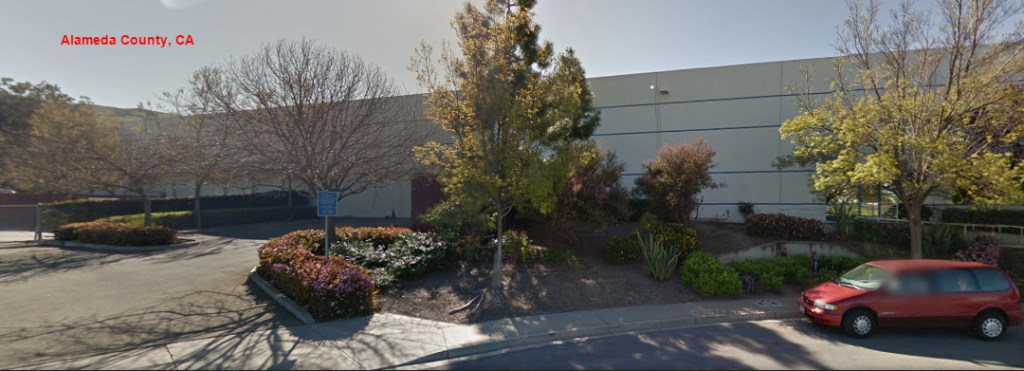Attorney – CPA – Realtors: We give your clients the White Glove treatment.
Tag Archives: tax appeal
Can the assessor raise the assessed value when I file a property tax appeal?
We get this question a lot.
Nobody wants to get an increase in their assessed value after filing for a reduction. People want to know the risks involved in filing a property tax appeal.
Assuming you have nothing to hide, such as added square footage that was not permitted by the County Building Department, there is very little risk in filing a property tax appeal.
First of all, in California the assessor is prohibited from assessing your property above the “factored base value.” The factored base value is generally your purchase price, or value at the date of completion of construction, increased or decreased annually by inflation factors, but not more than 2% per year.
My advice is to always file an appeal, because it can be withdrawn, and you have no risk of an increase, and at least an opportunity for a decrease. And my experience is that property reassessed with new base year values is generally not appraised by the assessor with the same care that will occur after an appeal. In other words, further scrupulous attention results in a different value, and usually it is less. So go for it.
New construction in Palo Alto causes absurd assessment valuation
Most people in Santa Clara County are aware that the residential real estate market is red hot.
Last week I got three calls from new clients that built new homes in Palo Alto who received notices from the County Assessor showing enormous values for the new structures.

Sample New Construction
For example, one property that was totally demolished and rebuilt had construction costs of $1,700,000 and the assessor valued these improvements at $3,900,000. Yikes!
I see this all the time – the homeowner became frustrated because the County appraiser would not listen to his argument that the value was far less than what the Assessor put on the tax roll. Santa Clara County allows for “informal” reviews for a certain number of days after notices are sent, but this particular County appraiser was non-responsive.
So the homeowner engaged us to file a formal appeal on his behalf. We will make an argument that suggests that the real appreciation in Palo Alto is not in the structures but in the land. And of course, the land value is protected from increase by proposition 13. Unfortunately, the formal appeals process can take 12 to 24 months, but we feel we have a very strong case, and the permanent reduction will be worth the effort. We may save our client in excess of $10,000 per year for as long as they own the property. Unfortunately, the formal appeals process can take 12 to 24 months, but we feel we have a very strong case.
If you’d like information on appealing new construction or any other property in California please contact us.
#SantaClara
#TaxAppeal
Massive property tax reduction in Alameda County.

Our client engaged Shannon & Snyder to reduce the assessed value of their 87,000 square foot light manufacturing building in Fremont.
With a 2012 assessed value of $13,100,000, the assessor put on a case to the Appeals Board at $9,500,000.
Shannon & Snyder put on its case for an assessed value of $5,100,000 (roughly a $4 million reduction over the assessor’s valuation) – and we crushed it.
The board agreed to reduce the value to $5,500,000, a 58% decrease.
We also put on our case for 2013 and the board liked it so much that they set the value at $5,600,000.
These two reductions will result in property tax refunds of over $175,000.

The commercial property tax appeal process in California
We asked Bill to share his knowledge of the appeals process and what is involved for the property owner.
Bill Snyder is a certified public accountant with specialized knowledge in California property tax law and the appeals process. He has been a CPA for over 30 years and is a partner in the accounting firm Shannon and Snyder in San Jose, CA. Bill’s specialty has helped California property owners receive hundreds of thousands of dollars in refunds by lowering the assessed value of a given property.
Bill, your specialty is commercial property tax reassessment in the state of California. If someone comes to you with what they the feel is an unfair assessment can you explain to us how you can help them out?
Bill: Sure, the first thing we would do is collect information about the property so we can evaluate whether or not it is over assessed. If it is, we will file the tax appeal on their behalf, acting as their agent, and we will pay the application fee and then we’ll submit the application in the timeframe that’s required by the various counties in the state.
Then we have to wait for the process to evolve. The counties are typically super busy and understaffed. It takes some time before the appeal process continues with negotiation with the county appraiser and possibly a hearing. That could be 12-15 months after the appeal is actually filed. Once the process gets to the point of working with the county appraisers we will present our valuation and discuss why we think the property is over assessed. If we disagree with the appraiser, then we will go to the hearing and present our case to the Appeals Board and demonstrate why we feel the taxes are too high.
What do you feel is the biggest misconception or misunderstanding a property owner might have about the whole appeals process?
Bill: In California Proposition 8 allows for a temporary reduction and many people are surprised how much the tax gets increased the year after they have a temporary reduction. They don’t realize that reducing your property taxes in one year does not guarantee it will be reduced the following year. A temporary reduction is just that: it is only for one year.
California law prevents your tax from increasing more than 2 percent per year, but that is based on what they call the factored base value. Your base value is your purchase price, or value upon completion of new construction. The factor is an inflation rate that is applied annually, no more than 2 percent. So if you take the factor and add it to the base value, you come to the factored base value. That is the maximum amount on which the assessor can calculate the tax each year. If you get a reduction in any one year, the assessor does have the opportunity to bring the assessed value back up to the factored base value the following year, if the market warrants it.
If, for example, you had a $500,000 reduction in assessed value in one year, the assessed value could go all the way back up by $500,000, plus 2 percent the following year and, if you disagree, you have to file another appeal.
What would you say is the biggest mistake people make when they try to do this whole thing on their own?
Bill: What I’ve seen and observed is that it is basically another complicated thing for busy people to fit into their busy schedules. You might think you are over assessed and you decide you are going to file an appeal. I have many clients that say to me that they have been thinking about doing this for years but they never got around to it. They finally got our flyer or they got referred to us and decided they would just simply engage a professional to take care of it because, then it gets done.
That’s probably the biggest mistake, just getting it filed. Even those that file an appeal don’t always see it through. If you’ve ever sat in on a hearing you’d see that there may be, say, thirty items on the agenda. It’s shocking how many people don’t show up at the hearing. They file the property tax appeal, and maybe they don’t respond to the hearing notice, so they don’t get the chance to negotiate with the county appraiser. And since they are not prepared, they don’t show at the hearing. If you don’t have the time and the experience and the expertise, then you’re probably not going to get it done and you’re probably not going to get it done for the lowest amount possible. Even if you return the hearing notice and have the opportunity to discuss the value with the county appraiser, unless you have the resources, you will largely depend on the county appraiser to arrive at a reduced value, if any. Having professional representation will generally motivate the appraiser to spend more time analyzing the property and allow for an expert presentation of your case. So those are the biggest mistakes: just not getting an appeal filed and not hiring a professional.
Tell us about how the market has changed in California in the last several years. Are there opportunities that you haven’t seen previously?
Bill: The markets for residential properties, certainly in the urban areas, has appreciated significantly. The property values are high. My neighborhood is higher than I think it has ever been. A lot of properties around Santa Clara County are like that. But that does not mean that the commercial property values are in sync with the residential values.
Commercial properties are valued on, of course, what people would pay for them, but also on income. We still have quite a bit of vacancy in most counties in California in the office market, which is causing most rental rates to stay lower than most landlords would like. If you’ve got vacancies, you’re probably lowering your rent to attract tenants. If you lowering your rent, you are certainly lowering the value of your building. I think it could be a misconception that the commercial market is comparable to the residential market when it is not. There is just a lot of office product out there and tenants have a lot to choose from. It is very competitive for the tenant which makes it fairly challenging for the landlord to fill space with quality tenants that pay a high rate. The same is true in the R&D and manufacturing markets. Rental rates may be climbing, but they haven’t fully recovered from the go-go days of the dot com era.
Why would working with a professional such as yourself increase a property owner’s chance of success in the appeals process?
Bill: Since we work on a contingent basis, we are motivated to achieve the largest property tax refund possible. But I think most important is that I have been a CPA for 30 years and have negotiated hundreds of deals and provided advisory and tax reduction strategies for a wide range of clients. We know how to provide customer service. If we handle an appeal we babysit the property value and tax and make sure it not over assessed every year. We’ll keep an eye on it and make sure you are paying the lowest amount possible.
I’ve had experience with clients that have filed their own property tax appeal and they have come to me and said that they didn’t think the reduction was large enough. So they hired us and we were able to get a larger reduction. We had an office building in Santa Clara County that was reduced from $3.1 million to $2.4 million by the county appraiser. They asked us to file a formal appeal and we eventually agreed to a valuation of $1.5 million. By hiring us, that $900,000 additional reduction resulted in a refund of $12,900. That was for one tax year. We are still working for that client on the subsequent year, to get the largest refund possible.
I think that says if somebody like me is contesting the county values, with the experience and resources that I have, then I think I will be able to argue the lowest amount possible. People that do this on their own generally don’t have the resources. I just don’t think county appraisers or appeals boards are going to compromise and get you the kind of reductions that we can get.
Important information for every California commercial property owner to know. Thanks for your time and insight today Bill.
Bill: You’re very welcome.
Bill Snyder can be contacted directly at Shannon and Snyder by calling 408-241-8700. Their business website is www.sscpa.com.


